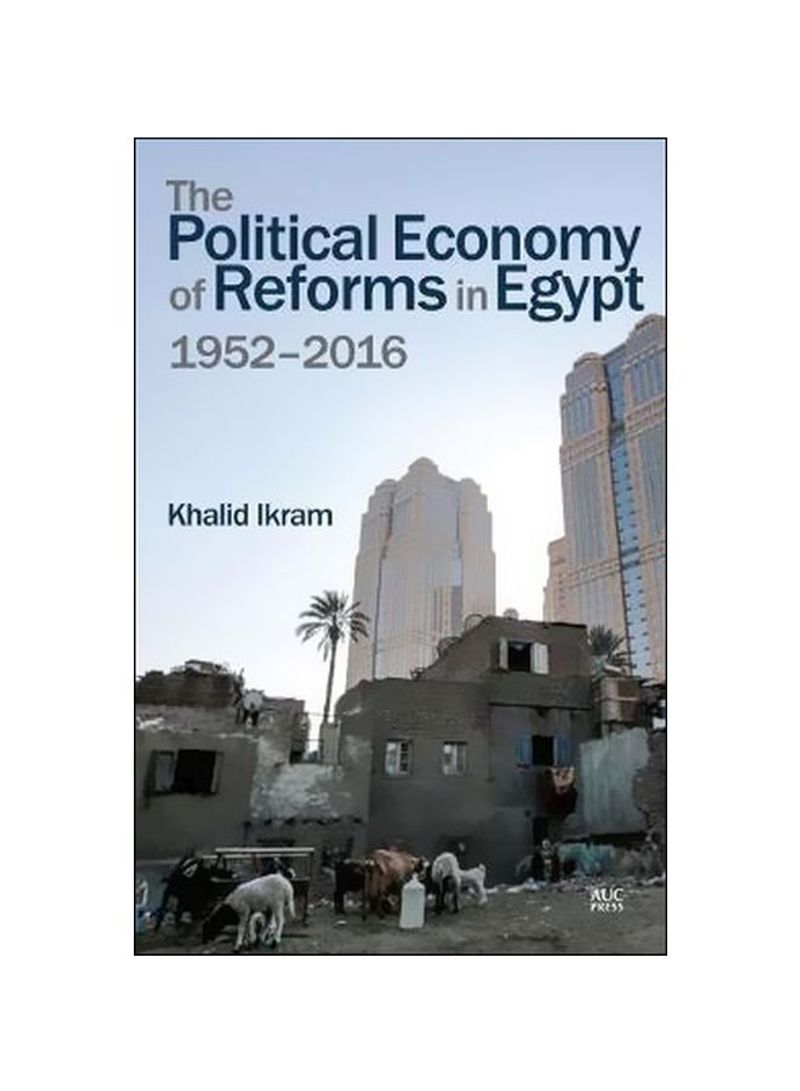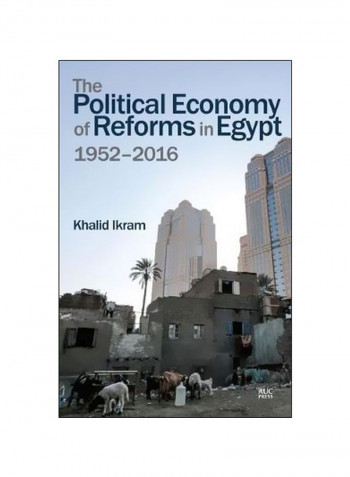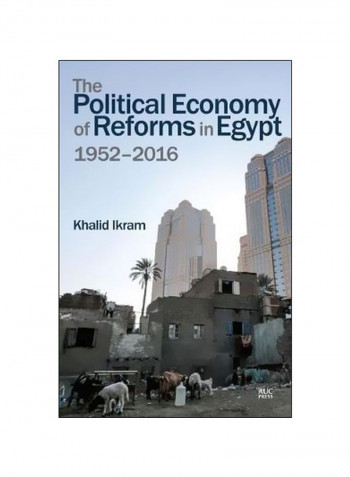The Political Economy of Reforms In Egypt 1952-2016 Hardcover
Recommend
Sort by
Rating
Date
Specifications
Author 1
Khalid Ikram
Book Description
What are the long-term structural features of the Egyptian economy? What are the factors that have facilitated or inhibited its performance? This crucial and timely work answers these questions and more by examining the most important economic decisions to have impacted the Egyptian economy since 1952 and the political factors behind them. Drawing on Khalid Ikram's extensive knowledge of economic policymaking at the highest levels, The Political Economy of Reforms in Egypt, 1952-2015 lays out the enduring features of the Egyptian economy and its performance since 1952 before presenting an account of policy-making, growth and structural change under the country's successive presidents to the present day. Topics covered include agrarian reforms; the Aswan High Dam; the move towards Arab socialism and a planned economy; the reversal of strategy and the infitah; fiscal, monetary, and exchange-rate policies; consumer subsidies; external debt crises; negotiations between Egypt and international donors and financial institutions; privatization; labor and employment; and poverty and income distribution. The analysis concludes with an examination of institutional reforms and development strategies to tackle the Egyptian economy's structural problems and lay the foundation for sustained and rapid growth. Written from the point of view of a 'participant-observer, ' this book will be indispensable to students of political economy, to scholars of Egypt and the Middle East, and to the general reader who wishes to understand, especially from the wealth of insider information provided, how domestic and international politics and economics can interact to shape decisions that promote, or prevent, economic reforms.
ISBN-10
9774167945
Language
English
Publisher
The American University In Cairo Press
Publication Date
12 April 2018
Number of Pages
384
About the Author
Khalid Ikram has been associated with Egypt's economic development for forty years, including as director of the World Bank's Egypt department. He has been a consultant to several institutions, including the World Bank, the Asian Development Bank, the Islamic Development Bank, USAID, OECD, UNDP and many other leading international and private institutions. He is the author of Egypt: Economic Management in a Period of Transition (1981) and The Egyptian Economy, 1952-2000: Performance, Policies, and Issues (2006).
Editorial Review
Written by someone who has had a ringside seat for decades, this fascinating volume is an important contribution not just to the economic history of Egypt, but to the political economy of aid and development, with a surprisingly frank perspective on the role of the Bretton Woods Institutions. Ehtisham Ahmad, University of Bonn and London School of Economics"This book is not only a major analytical contribution toward understanding the Egyptian political economy, but also provides a template for assessing policy challenges in other developing countries, particularly in the Middle East." Zubair Iqbal, Middle East Institute, Washington DC."This volume provides the cogent and deeply informed analysis that Egypt s development deserves but has rarely received. The Arab world s largest and most populous economy has consistently failed to realize its growth potential and Khalid Ikram explains why. A must read for all those with an interest in the political calculations that underlie the making and implementing of economic polices." Shahid Yusuf, George Washington University School of Business in Washington DC



